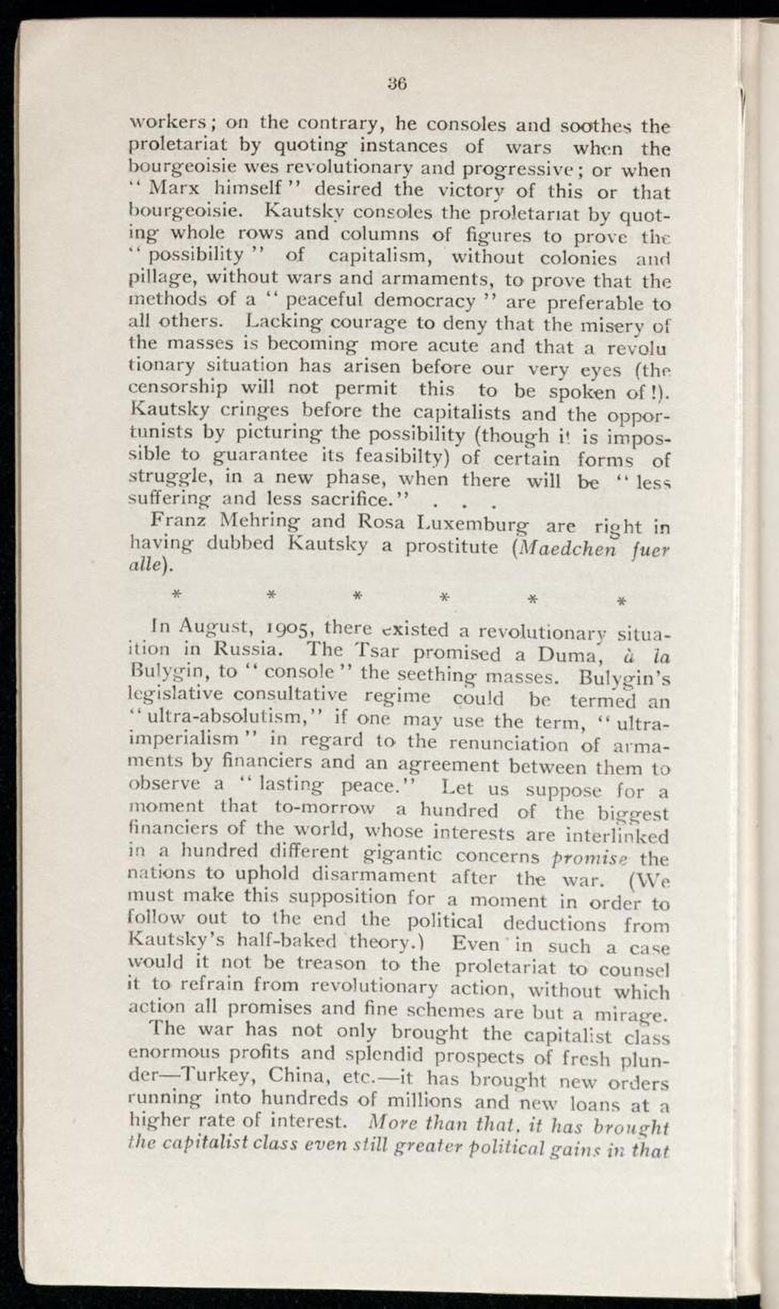36
workers; on the contrary, he consoles and soothes the proletariat by quoting instances of bourgeoisie wes revolutionary and progressive; or when "Marx himself" desired the victory of this or that bourgeoisie. Kautsky consoles the proletariat by quoting whole rows and columns of figures to prove the "possibility" of capitalism without colonies and pillage, without wars and armaments, to prove that the methods of a "peaceful democracy" are preferable to all others. Lacking courage to deny that the misery of the masses is becoming more acute and that a revolutionary situation has arisen before our very eyes (the censorship will not permit this to be spoken of!). Kautsky cringes before the capitalists and the opportunists by picturing the possibility (though i! is impossible to guarantee its feasibilty) of certain forms of struggle, in a new phase, when there will be "less suffering and less sacrifice." …
Franz Mehring and Rosa Luxemburg are right in having dubbed Kautsky a prostitute (Maedchen fuer alle).
******
In August, 1905, there existed a revolutionary situaition in Russia. The Tsar promised a Duma, à la Bulygin, to "console" the seething masses. Bulygin's legislative consultative regime could "ultra-absolutism," if one may use the term, "ultra-imperialism" in regard to the renunciation of armaments by financiers and an agreement between them to observe a "lasting peace." Let us suppose for a moment that to-morrow a hundred of financiers of the world, whose interests are interlinked in a hundred different gigantic concerns promise the nations to uphold disarmament after the war. (We must make this supposition for a moment in order to follow out to the end the political deductions from Kautsky's half-baked theory.) Even in such a case would it not be treason to the proletariat to counsel it to refrain from revolutionary action, without which action all promises and fine schemes are but a mirage.
The war has not only brought the capitalist class enormous profits and splendid prospects of fresh plunder—Turkey, China, etc.—it has brought new orders running into hundreds of millions and new loans at a higher rate of interest. More than that, it has brought the capitalist class even still greater political gains in that
